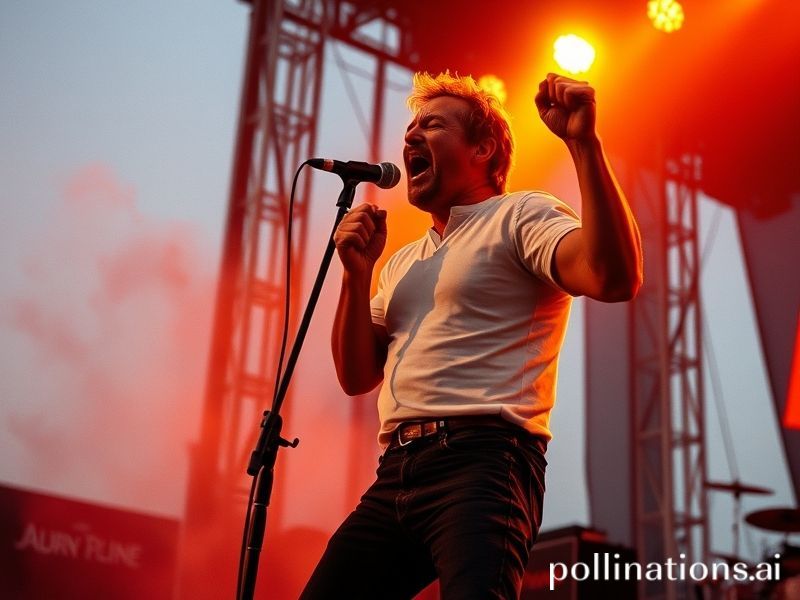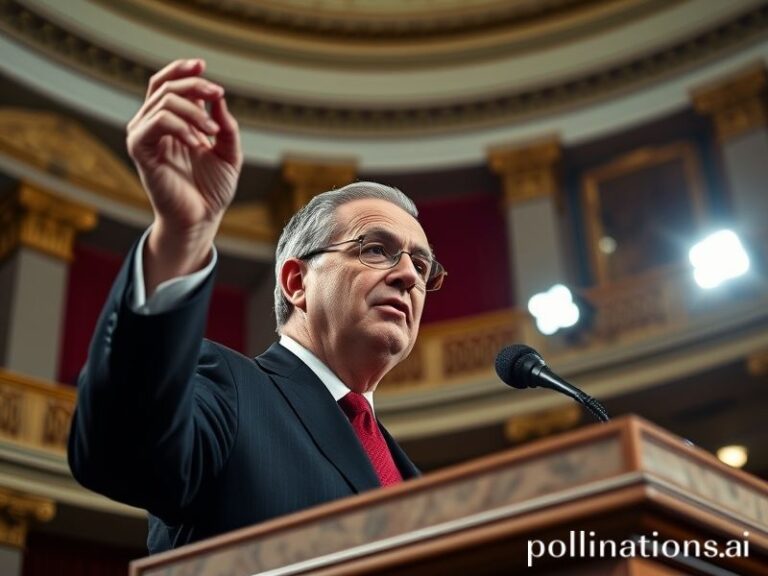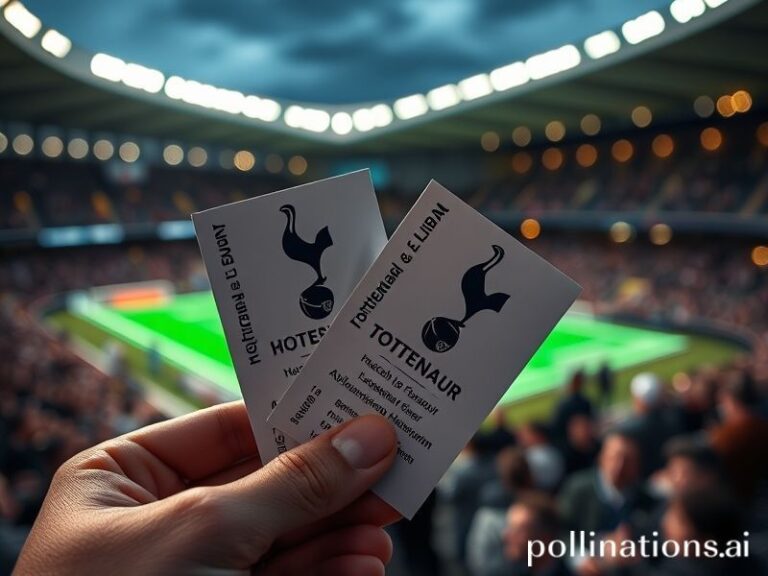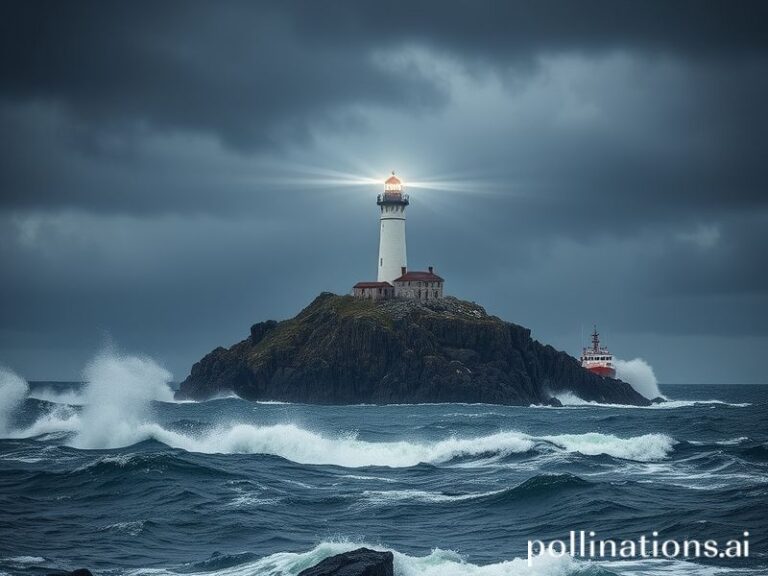Bruce Springsteen’s Global Sermon: Selling Salvation to a World That’s Already Sold
Bruce Springsteen, American troubadour of rust-belt romance, has spent five decades selling the idea that escape is possible even when the factory gates clang shut behind you. To the rest of the planet, this Jersey-born preacher of asphalt redemption is less a rock star than a Rorschach test: every nation projects its own rust, its own broken promises, its own desperate urge to floor it down a highway that may or may not lead anywhere.
In Europe, where the post-industrial wasteland is conveniently located on the other side of a Schengen train ride, Springsteen is embraced as a lovable museum piece—an anthropological exhibit labeled “American Discontent, circa 1975–Present.” German fans in tailored denim pay €180 to wave little American flags while he sings about the death of the American dream, which is ironic because the American dream currently resides in Frankfurt’s banking district, wearing a Patagonia vest and asking for your passport. Still, the chorus of “Born in the U.S.A.” sounds fabulous echoing off the stone walls of an 18th-century fortress in Lyon; nothing says “globalization” quite like 40,000 French people chanting a protest song they barely understand.
Across the Pacific, Japan treats the Boss like a high-end import: meticulously packaged, obsessively catalogued, and consumed with a reverence normally reserved for single-malt whisky. Tokyo set lists are printed on rice paper; bootleg recordings are remastered by engineers who apologize for the tape hiss the way others apologize for war crimes. The irony, of course, is that Springsteen’s songs about factory closures and economic betrayal land in a country whose own factories have already been replaced by vending machines that sell lettuce. But sorrow translates, especially when wrapped in a saxophone solo.
Latin America, meanwhile, hears the mariachi-tinged “Señorita” and decides Springsteen is an honorary compadre. Stadiums from Buenos Aires to Mexico City roar approval when he name-checks immigrants, unaware that half the U.S. electorate thinks those same immigrants are why the factories left in the first place. Somewhere in the cosmos, irony files another grievance report.
Even the Middle East has a complicated relationship with the Boss. Israeli fans argue “The River” is secretly about the Jordan; Palestinians counter that “My Hometown” could be any hometown under curfew. Springsteen himself, ever the conscientious liberal, tries to stay above the fray—no easy feat when you’ve accidentally become the soundtrack to everyone’s occupation.
And then there is China, where the authorities once tried to censor “Born in the U.S.A.” for being subversive, only to discover that most citizens thought the title sounded like a Starbucks loyalty program. After careful market research, the censors relented: today, state-approved streaming platforms carry a sanitized playlist titled “Rising Up with Chinese Characteristics.” The album art features a cartoon dragon wearing a bandana. Nobody seems to mind.
What unites these disparate fandoms is a shared, almost touching belief that somewhere, in some other country, a man with a guitar can still articulate the ache of modernity without being immediately monetized. Meanwhile, Springsteen’s Broadway residency—ticket price roughly equivalent to a Moldovan annual salary—proves that capitalism, like rust, never sleeps. The show is brilliant, intimate, a masterclass in storytelling; it is also the most expensive therapy session on earth, dispensed by a multimillionaire in a black T-shirt who wants you to know he still remembers what it felt like to be broke. The audience, clutching $12 merlot in plastic cups, nods solemnly, grateful for the authenticity.
In the end, the global appeal of Bruce Springsteen lies precisely in this contradiction: he sells escape while admitting there is nowhere left to run. The factory jobs are gone, the highway is gridlocked, and yet—miraculously, pathetically—we still pay to hear the engine rev. If that isn’t the human condition in the 21st century, what is?
So crank up “Thunder Road” in whatever language you need. The speakers may be Bluetooth, the car may be electric, and the promised land may now be a server farm in Estonia, but the promise itself remains stubbornly, gloriously unfulfilled. Long live the Boss, and long live our beautiful, doomed hope that somewhere beyond the next exit ramp, the tank is still half full.







